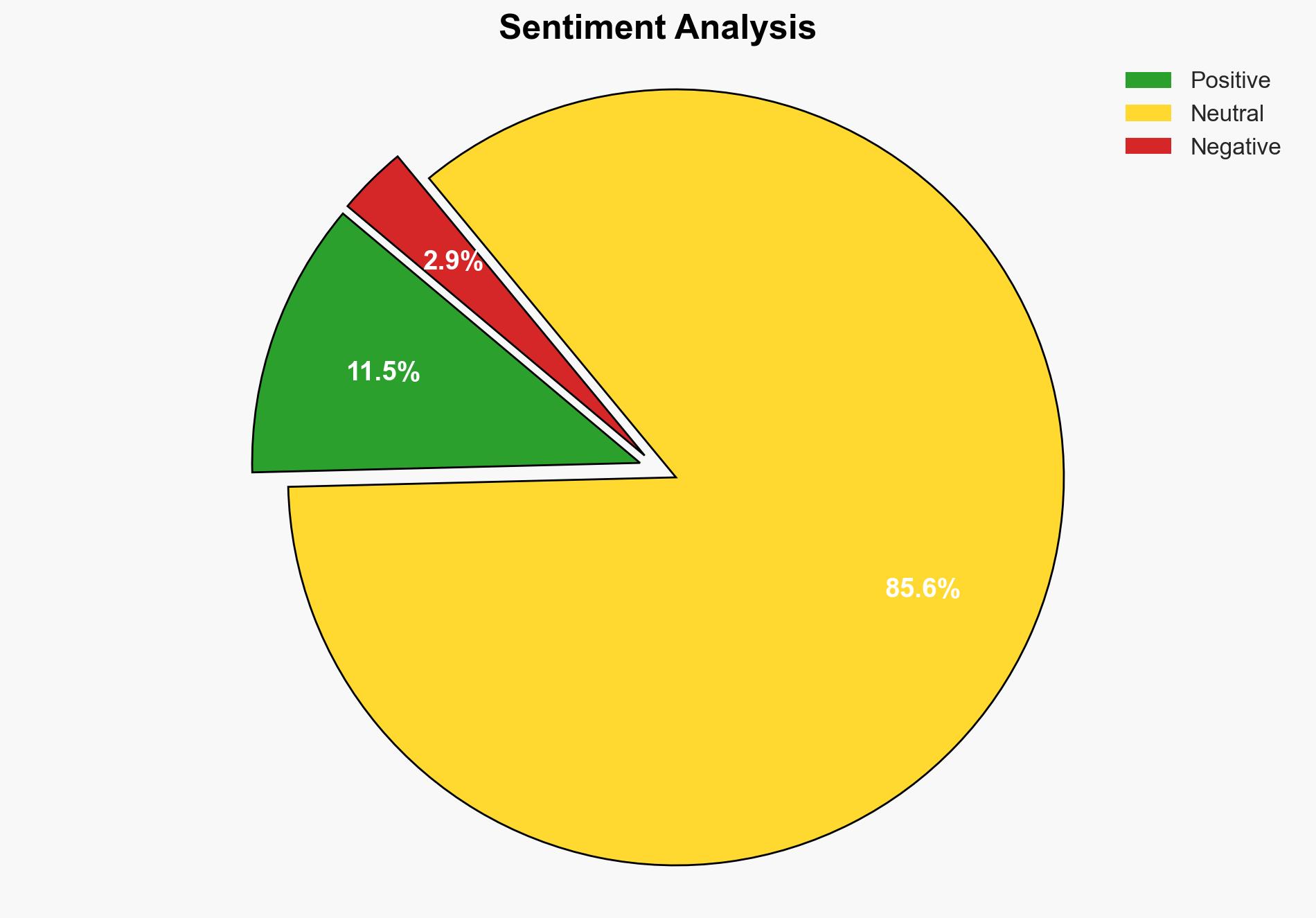Metal tariffs make American manufacturing less competitive can makers say – Packagingdive.com
Published on: 2025-03-14
Intelligence Report: Metal Tariffs Make American Manufacturing Less Competitive Can Makers Say – Packagingdive.com
1. BLUF (Bottom Line Up Front)
The imposition of tariffs on aluminum and steel imports by the U.S. administration has led to increased production costs for American manufacturers, particularly in the food and beverage packaging sector. This has resulted in reduced competitiveness against foreign products, potentially impacting domestic economic stability and food security. Immediate consideration of exemptions and strategic trade agreements is recommended to mitigate these effects.
2. Detailed Analysis
The following structured analytic techniques have been applied for this analysis:
General Analysis
The tariffs on aluminum and steel imports have created significant price pressures on American manufacturers. The cost of critical production materials has risen, making domestically produced goods less competitive compared to foreign products. The domestic industry, producing approximately 130 billion cans annually, is facing challenges due to the tariffs. The potential closure of tin mill lines further exacerbates the issue, as domestic production struggles to meet demand. The risk of market flooding with cheaper foreign products, particularly from China, remains high.
3. Implications and Strategic Risks
The tariffs pose several strategic risks, including:
- Economic Impact: Increased production costs may lead to higher consumer prices, contributing to inflationary pressures.
- National Security: Dependence on foreign aluminum and steel could compromise domestic food security.
- Regional Stability: Trade tensions with key partners such as Canada and Mexico may escalate, affecting regional economic stability.
4. Recommendations and Outlook
Recommendations:
- Consider granting exemptions to key sectors to alleviate immediate economic pressures.
- Negotiate strategic trade agreements with major aluminum and steel suppliers, particularly Canada and Mexico.
- Invest in domestic production capabilities to reduce reliance on imports and enhance supply chain resilience.
Outlook:
Best-Case Scenario: Exemptions and trade agreements are successfully negotiated, stabilizing production costs and maintaining competitiveness.
Worst-Case Scenario: Continued tariff enforcement leads to widespread industry closures, increased unemployment, and significant economic downturn.
Most Likely Scenario: Partial exemptions and strategic negotiations mitigate some impacts, but challenges persist in maintaining competitive pricing.
5. Key Individuals and Entities
The report mentions significant individuals and organizations, including:
- Robert Budway
- Charles Johnson
- Organizations such as the Can Manufacturers Institute and the Aluminum Association.





